- Buch: 390 Seiten
- Verlag: Kessel, Norbert
- Autor: Marcelo Inacio da Cunha
- Auflage: 1. Aufl., erschienen am 28.11.2018
- ISBN-10: 3-945941-47-4
- ISBN-13: 978-3-945941-47-8
- Größe und/oder Gewicht:
Access to Resources and Markets for Sustainable and Inclusive Value Chains:
Autoren: Marcelo Inacio da Cunha24,00 €
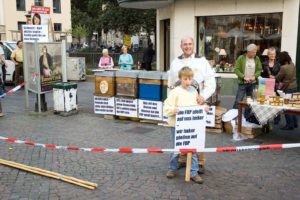
HONIGHÄUSCHEN (BONN) – Given the lack of access of forest dependent rural dwellers to resources and markets as well as the lack of an institutional environment that is conducive for reconciling biodiversity conservation and livelihood strategies in the Brazilian Amazon, the main and sub-research questions are respectively: How do informal and formal institutions affect the access to Brazil nuts and markets by buyers and, especially, by gatherers within the Brazil nut value chain in the Lower Amazon basin? How are institutions that affect resource and market access institutionalized and formalized? By identifying self-declared informal and formal institutions filtering resource and market access of upstream value chain actors, it is scoped for leverage points towards locally adapted institutions to overcome such access limitations in the realm of strengthening Brazil nut gatherers chain position. The following institutions in use have been found to be crucial for determining the (lack of) access to livelihood relevant resources (Brazil nuts) and markets in the Lower Amazon basin. The informal institution analyzed is the debt-peonage system aviamento and the formal one is the Term of Compromise (TdC, per acronyms in Portuguese) in Brazil. The TdC is a legally-based instrument for overcoming conflicts between the Chico Mendes Institute for Biodiversity Conservation (ICMBio, per acronyms in Portuguese) as responsible branch of the Brazilian Ministry of Environment (MMA, per acronyms in Portuguese) for managing federal Protected Areas (PAs) and traditional populations over natural resources in such areas. The innovative analytical framework developed herein captures how both informal and formal institutions (determinants) as well as related formalization and institutionalization (processes) affect the resource and market access by upstream value chain actors. This framework helps capturing institution-based access restrictions affecting the chain position of Brazil nut gatherers (corresponding to the main research question). It builds the groundwork for constructing a model to help understand what is behind empirical phenomena pertaining to the institutionalization and formalization of access limiting institutions (corresponding to the sub-research question herein). The proposed model on analytical ingredients for self-sustained strengthening of upstream value chain nodes is built for transforming locally reported institution-based access problems towards the outcome of adapted access enabling institutions for strengthened upstream nodes of food chains. Quantitative and, particularly, qualitative data were collected from community to national level (20122015). In order to quantify socioeconomic conditions and resource as well as market access, a survey was conducted with 185 households in four municipalities of the Lower Amazon region. Detailed qualitative data was gathered mainly through narrative, problem-centered and key-informant interviews with the already quantitatively assessed households accounting for a respective sample of 89 actors in two of these municipalities (Oriximiná and Óbidos): mainly the ones directly involved in upstream nodes of the Brazil nut value chain (Brazil nut gatherers and buyers) yet also indirectly involved actors at all administrative levels, including representatives of the Brazilian government (e.g. from ICMBio, from MMA, from the Ministry of Agrarian Development (SEAD (formerly, MDA), per acronyms in Portuguese), the Ministry of Development, Industry and Trade (MDIC, per acronyms in Portuguese)); from the private sector (including all three Brazil nut processing mills in the subnational region at stake) as well as from NGOs (e.g. from the Amazon Institute of People and the Environment (IMAZON, per acronyms in Portuguese), from the Institute for the Management and Certification of Forests and Agriculture (IMAFLORA, per acronyms in Portuguese), and from the Pro-Indigenous People Commission of the state of São Paulo (CPI-SP, per acronyms in Portuguese). Results including leverage points for strengthening the chain position of economically and geographically marginalized value chain actors on a sustainable basis show: (i) formalization of resource and market access restrictions per TdC has reinforced unbalanced patron-client relations among Brazil nut gatherers and buyers already institutionalized per debt-peonage; (ii) self-reliant sustainable Brazil nut value chain development depends on democratic participation in decision-making for locally adapted TdC by transforming the governance structures of councils for managing PAs from consultative to deliberative ones, while co-shaping a conducive context-sensitive institutional environment, policies and service provision; (iii) socioeconomic upgrading of the position of upstream value chain actors builds on ability and self-organization of smallholders in well-managed cooperatives (complying to widespread cooperative principles). Further, suggestions for actions and policy recommendations based on analytical and empirical evidences are provided for each one of the actors directly or indirectly involved in the Brazil nut value chain at stake as are future research needs in the realm of self-determined local environmentally sound development. All together, this thesis offers scientific input for an outcome pathway towards an enabling institutional environment in the realm of inclusive sustainable rural development. Finally, this thesis contribution lies mainly in an innovative problem-based and institution-sensitive approach to analyzing (the lack of) resource and market access towards strengthening the value chain position of marginalized upstream chain actors. The herewith developed model and, particularly, analytical framework can be applied for inclusive sustainable value chain development of agricultural and, especially, non-timber forest products (NTFPs) in different rural contexts.
Über „Access to Resources and Markets for Sustainable and Inclusive Value Chains:“
Das vorliegende Sachbuch zu Themen aus Umwelt und Natur „Access to Resources and Markets for Sustainable and Inclusive Value Chains:“ wurde erarbeitet und verfasst von Marcelo Inacio da Cunha. Dieses Sachbuch erschien am 28.11.2018 und wurde herausgegeben von Kessel, Norbert.
Bücher wie „Access to Resources and Markets for Sustainable and Inclusive Value Chains:“ sind im Onlineshop des Honighäuschens bestellbar. Online bestellte Fachbücher zur Imkerei und zu anderen Themen der Umwelt und des Artenschutzes sind zu den üblichen Öffnungszeiten auch direkt im Buchladen Bundesamt für magische Wesen in Bonn, der Stauhauptstadt von Nordrhein-Westfalen abholbar und werden auf Wunsch verschickt.
Das Thema Bienensterben, Rückgang von Insekten und allgemeines Artensterben ist in aller Munde und das Honighäuschen als frühere Bioland Imkerei hat sich von Anfang an daran beteiligt. Mehr als 35 Jahre Imkereierfahrung nahmen ihren Anfang 1982 mit den ersten eigenen Bienen.
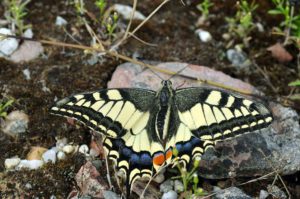
Der zehnjährige Junge, der 1977 einem Hamburger Imker über die Schulter schaute; der Fünfzehnjährige, der mit der Imkerei in Zeiten begann, in denen es noch keine Varroamilbe gab; der achtzehnjährige Fahrschüler, der lernte, dass man die Windschutzsscheibe seines Autos nach einer längeren Fahrt von Insekten säubern muß; der zwanzigjährige Student, der für seine Bienen einen Platz in Bonn suchte; der dreißigjährige Berufsimker, der seinen Bienen quasi eine Gutenachtgeschichte erzählte und sich den Kopf zerbrach, wie man die Umwelt mit ihren Bienen, Wespen, Schmetterlingen und andere blütenbesuchenden Insekten vor den Machenschaften der Agrargiftindustrie und der Gleichgültigkeit agrarindustriehöriger Politiker schützt; der Imker, der nicht nur auf dem Weihnachtsmarkt Bonn die Öffentlichkeit suchte, um bei Führungen an den Bienen auf dem Dach der Bundeskunsthalle zu erleben, dass Kinder (und deren Helikoptermuttis!) Angst vor Schmetterlingen hatten, bis hin zum Begleiter von Forschungsprojekten zu den Riesenhonigbienen Nepals oder den Killerbienen Afrikas, stellt fest, dass etwas sehr im Argen liegt in unserem Umgang mit der Umwelt.
Es sollte jedem bewußt sein, dass die Haltung „Natur ja, aber bitte woanders!“ nicht in Ordnung ist.
Die wunderschöne Welt der Natur
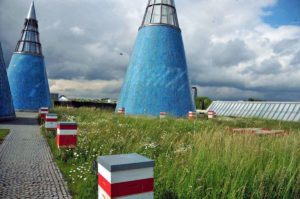
In unserem Online-Buchshop finden Sie viele Bücher wie „Access to Resources and Markets for Sustainable and Inclusive Value Chains:“, die Ihnen die fantastische Welt der Bienen, Wespen, Ameisen, Hornissen und Schmetterlinge sowie anderer Insekten näherbringen.
Aber nach wie vor stehe ich Ihnen auch gern zu einem Gespräch oder zu einer Beratung im Umgang mit Bienen, Wespen, Hornisse, Wildbienen und Hummeln zur Verfügung, wenn Sie Fragen haben. Besuchen Sie uns in Bonn im Bundesamt für magische Wesen.
Und natürlich gibt es auch weiterhin Honig, Bienenwachskerzen und Met bei uns und zwar das ganze Jahr – nicht nur zu Weihnachten.
Marke
Kessel, Norbert
Nur angemeldete Kunden, die dieses Produkt gekauft haben, dürfen eine Bewertung abgeben.
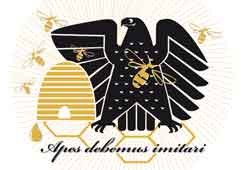

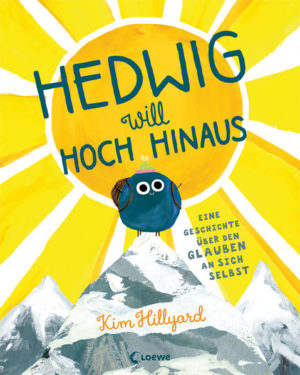
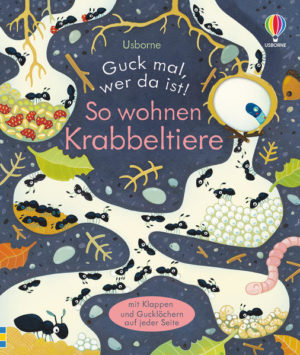
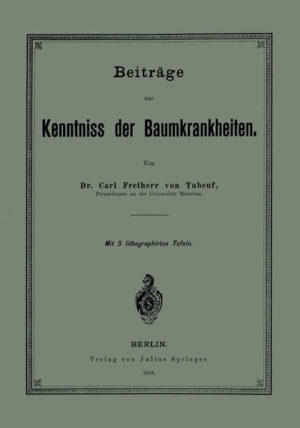
Bewertungen
There are no reviews yet